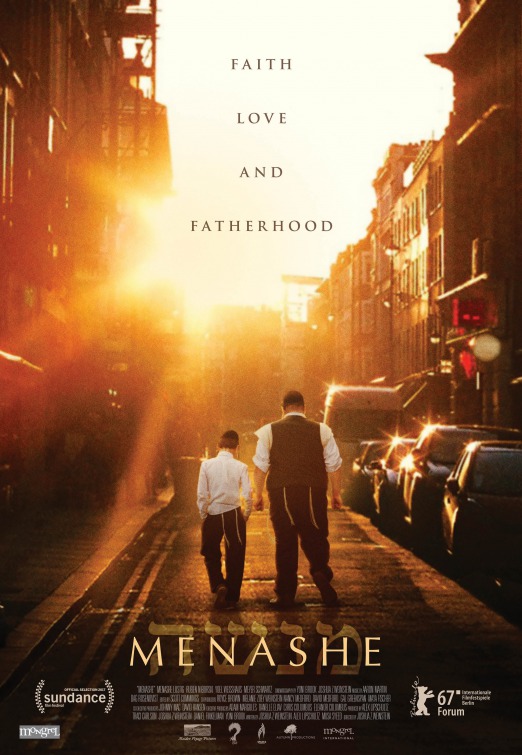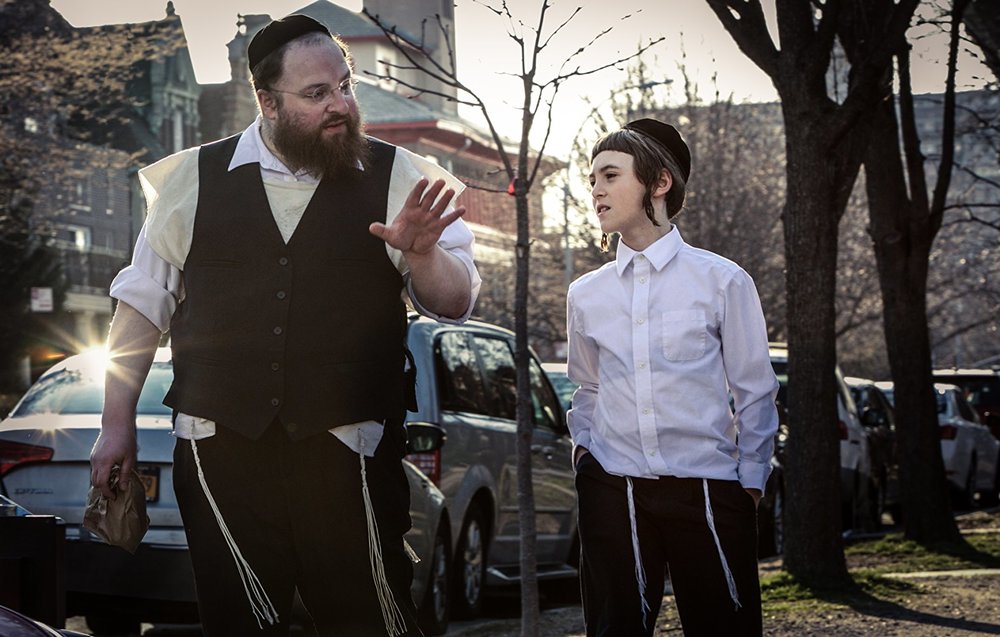Menashe (2017)


SHOULD I SEE IT?
YES
One of the most critically acclaimed films of the year, Menashe takes viewers into a world and a culture seldom represented on the big screen.
Largely comprised of amateur actors or non-actors, the movie has a genuineness about it that makes it hard to resist.
Not afraid to show a main character's flaws and stumbles, Menashe paints a portrait of a man learning how to become the father his son needs to be.
NO
Spoken almost entirely in Yiddish, though shot in location in New York, the film is subtitled, and few are aware of that. (I still think this is reason enough to see it,)
Steeped in the cultures and theologies of the Hasidic Jewish community of New York City, the film presumes you are aware of specific rituals, beliefs, and synagogue support. You may not be, and it may take you some time to understand what is going on here.
Some feel that the film is needlessly cruel to Menashe, giving him unnecessary plot contrivances to extend the movie.
OUR REVIEW
Life is often not pretty. When times turn tough, some believe God can give us all we can handle at any given time, while others believe we create our own path through life. We turn to our church, our peers, our colleagues and friends, for guidance and assistance, hoping to find a resolution or a plan to emerge which allows us to fix what bothers us and heal and move forward.
In Menashe, a widowed father is battling with his own family to win back custody of his son. Upon his wife's death, Menashe (Menashe Lustig) watched as his 10-year-old son Reiven (Ruben Niborski) moved into his brother Eizik's (Yoel Weisshaus) home, at the behest of their rabbi (Meyer Schwartz). The move is supposed to be a temporary one, but the time has come, per tradition, for Menashe to take a new wife or surrender custody of his son to his brother's family.
Directed by Joshua Z. Weinstein, his first narrative feature film has an undeniable genuineness that feels documentary-like more often than not. Weinstein, a documentary filmmaker by trade, filled his cast with a number of non-professional actors and created a organic and honest cinematic experience.
The movie is a patient 82 minutes, emulating the journey that Menashe and Reiven are on in reconciling. Occasionally, Eizik comes and checks on his brother and sees a man unable to follow Hasidic traditions. He raises his voice, sternly lectures his brother, and stomps off in frustration. Menashe also has his rabbi frustrated, imbibes in some alcoholic beverages and parties with friends. He also is making numerous mistakes in his job at a local grocery. In other words, he does himself no favors, and with each passing blunder or intransigent act, a reality forms where father and son may not be able to live together under the same roof.
Weinstein attempts to immerse us into a world that seldom, if ever, gets depicted on screen, doing so with transparency. With Lustig, he finds a striking leading man, effortlessly carrying much of the film on his back. Many scenes are improvised, and Lustig brings an authenticity to his performance, which allows other non-actors the opportunity to try and forget the camera is on and just exist in the moment.

Ultimately, the film really resonates when Reiven and Menashe are together. However, Menashe cannot get out of his own way and continues to make individuals, with influence on Reiven's future, doubt that he can be the father he says he can be.
Tradition and culture follows Menashe, the man and his movie, like a dark cloud. Weinstein felt the only way he could make the movie properly was to have things feel as real and true as possible. One subtle but powerful angle to this comes in the realization that this story exists in an America seldom depicted on screen. By lending a voice to the Hasidic and Orthodox Jewish community, in a recognizable New York City landscape, we have fresh optics on screen to ponder, consider, and explore.
A father trying to regain custody of his son is a story that could be told in any language. Conflicts with religion, faith, and wrestling with feelings of guilt in defiance of your conviction can be universal.
Menashe is a very good film, with Weinstein directing us through a unique and insightful movie experience. Taking two years to complete, the director went and hung out in the Borough Park neighborhood of New York in pre-production scouting sessions. Curious folks would inquire, he would tell them about his project, and invariably, some that agreed to be involved would drop out, never show up to rehearsals, etc.
Lustig however stuck with the film and invested in a concept that resembled life experiences he endured years before. Weinstein's perseverance. to tell a tender, heartfelt drama about a man attempting to hold together a family unexpectedly torn apart by tragedy, is a film which educates, informs, and entertains.
CAST & CREW
Starring: Menashe Lustig, Ruben Niborski, Yoel Weisshaus, Meyer Schwartz, Yoel Falkowitz.
Director: Joshua Z Weinstein
Written by: Alex Lipschultz, Musa Syeed, Joshua Z Weinstein
Release Date: July 28, 2017
A24
